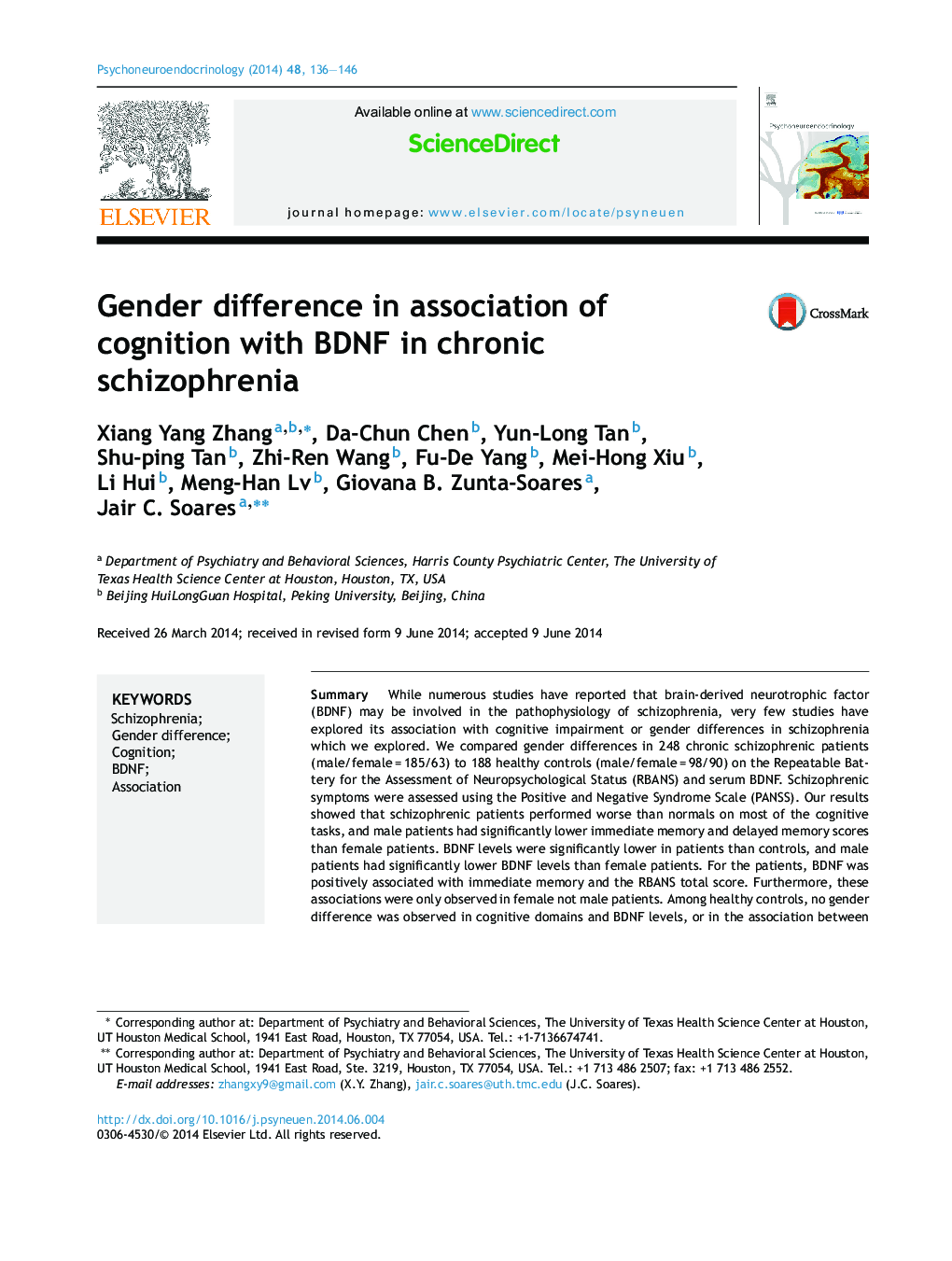| کد مقاله | کد نشریه | سال انتشار | مقاله انگلیسی | نسخه تمام متن |
|---|---|---|---|---|
| 336284 | 547108 | 2014 | 11 صفحه PDF | دانلود رایگان |
SummaryWhile numerous studies have reported that brain-derived neurotrophic factor (BDNF) may be involved in the pathophysiology of schizophrenia, very few studies have explored its association with cognitive impairment or gender differences in schizophrenia which we explored. We compared gender differences in 248 chronic schizophrenic patients (male/female = 185/63) to 188 healthy controls (male/female = 98/90) on the Repeatable Battery for the Assessment of Neuropsychological Status (RBANS) and serum BDNF. Schizophrenic symptoms were assessed using the Positive and Negative Syndrome Scale (PANSS). Our results showed that schizophrenic patients performed worse than normals on most of the cognitive tasks, and male patients had significantly lower immediate memory and delayed memory scores than female patients. BDNF levels were significantly lower in patients than controls, and male patients had significantly lower BDNF levels than female patients. For the patients, BDNF was positively associated with immediate memory and the RBANS total score. Furthermore, these associations were only observed in female not male patients. Among healthy controls, no gender difference was observed in cognitive domains and BDNF levels, or in the association between BDNF and cognition. Our results suggest gender differences in cognitive impairments, BDNF levels and their association in chronic patients with schizophrenia. However, the findings should be regarded as preliminary due to the cross-sectional design and our chronic patients, which need replication in a first-episode and drug naïve patients using a longitudinal study.
Journal: Psychoneuroendocrinology - Volume 48, October 2014, Pages 136–146
